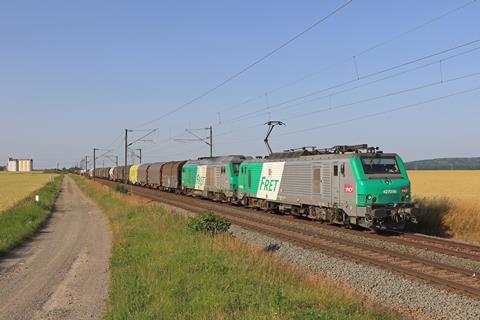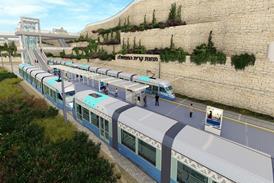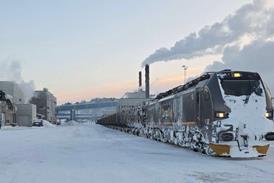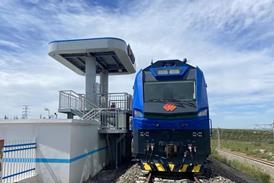
EUROPE: The need for European co-ordination, better train paths and the best use of technology to improve service quality were among the topics covered when the French Ministry of Transport organised a conference in Paris on February 23-24 to discuss ways of improving European rail freight services.
Paul Mazataud, Rail Net Europe CEO and Freight Manager at SNCF Réseau, said a new timetabling app would help freight operators to book paths from 2025. Other important developments include the Digital Automatic Coupler programme and train automation, with a number of speakers suggesting that freight trains could offer better opportunities for automation than road or marine traffic. Automatic translation tools could remove language barriers in the coming years, and are currently on test between Austria and Italy.
Multimodal integration was another key theme, with customers wanting easy ways of combining rail, road and sea services.
Around a third of European rail freight is international, the conference heard, but the Rail Freight Corridors are not proving as successful as had been hoped, because of fragmented national approaches.
Several speakers argued that public financial support for wagonload and combined transport and a reduction in access charges could be a catalyst to increase freight services. There is also a need for the industry to develop new markets, as well as to retain existing traffic, which will require customer trust and the rail sector to be willing to adapt operating practice and digitalise.
France announced a national rail freight strategy in September 2021, but speakers highlighted ongoing problems, especially on the Rail Freight Corridors. French government intends to issue a state-supported contract for the operation of Cherbourg – Bayonne autoroute ferroviaire, but some speakers said this had a French rather than European outlook.
Similar criticism was made of France’s approach to the North Sea Mediterranean Corridor, where five tunnels in the Vosges mountains need enlarging to accommodate P400 profile semi-trailers. At present, Belgium – Italy semi-trailer traffic must be routed along the right bank of the River Rhein in Germany, adding 120 km to each trip and DB Netz access charges.
The clearance problem has been known since 2011 and tests were undertaken by freight operators in 2017, but no progress has been made since then; SNCF Réseau told the conference that it required subsides for studies, and this was a matter for France and the European Commission.

















